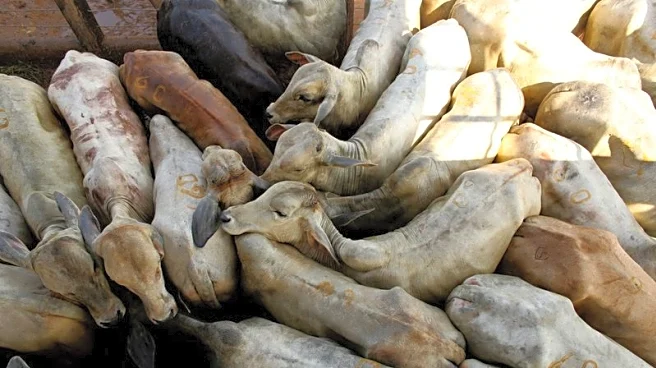By Ana Mano
SAO PAULO (Reuters) -JBS, the world's largest meat company, has indirectly bought cattle raised illegally on indigenous land in Brazil, according to a Greenpeace investigation released on Thursday.
The animals allegedly bought by the beef giant were reared originally in the Amazonian Pequizal do Naruvôtu indigenous territory and later were "indirectly supplied [to] JBS meatpacking plants authorized to export to the European Union, Asia, and the Americas," according to the activist group.
Greenpeace said the investigation found that between 2018 and 2025, farmer Mauro Fernando Schaedler transferred at least 1,238 animals from one of his farms that overlap with the indigenous land to another property free of irregularities. Greenpeace said that this second farm, which has a clean record, sold animals to JBS.
Greenpeace used official transit documents to track groups of cattle between the farms and the slaughterhouse. But, because Brazil lacks an individual identification system for cattle, it is virtually impossible to know exactly which animals were transferred where.
In a statement, JBS said that Greenpeace had failed to demonstrate that the cattle allegedly raised irregularly had reached its slaughterhouses, and that all of its purchases were made according to strict policies for responsible sourcing of raw materials.
Still, JBS added that the company had blocked the farm mentioned in Greenpeace's investigation and demanded explanations from the farmer.
Representatives for both farms did not immediately return comment requests.
The practice of moving cattle from an irregular property to another with a clean record is known as "cattle laundering," because it helps hide the origin of the animal, Greenpeace said.
(Reporting by Ana Mano; Editing by Aurora Ellis)









